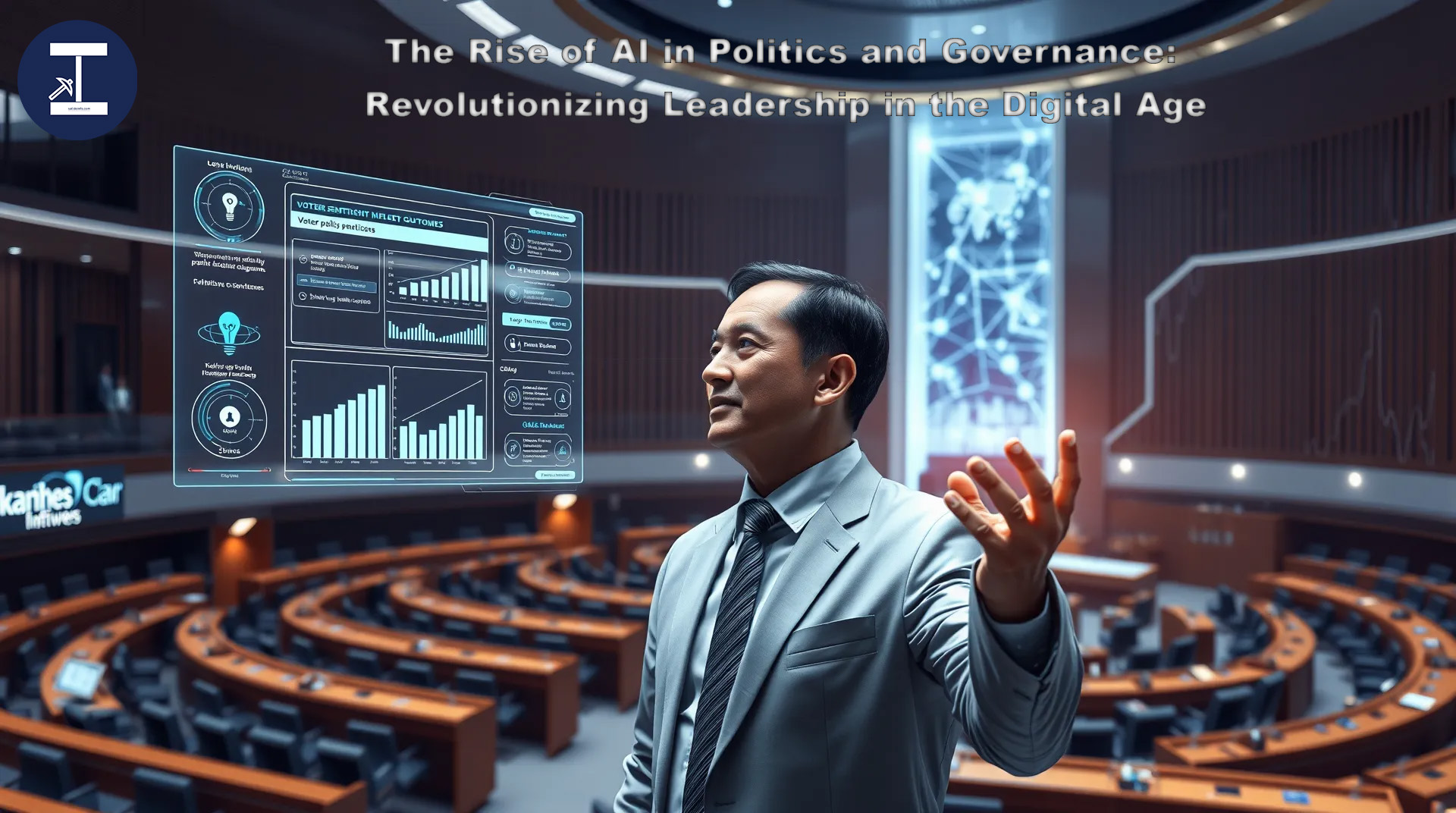In an era dominated by rapid technological advancements, artificial intelligence (AI) is reshaping industries across the globe. Among its most transformative applications is its integration into politics and governance. AI is not only enhancing governmental efficiency but also redefining the way political campaigns are conducted, policies are formulated, and citizen engagement is fostered. As nations strive for digital transformation, the role of AI in political decision-making is becoming increasingly significant.
AI-Powered Political Campaigns
Political campaigns have traditionally relied on extensive human effort, intuition, and traditional media to connect with voters. However, AI is revolutionizing the process by leveraging big data analytics, sentiment analysis, and predictive modeling. AI-powered tools can analyze vast amounts of social media activity, public sentiment, and voter behavior to craft highly targeted campaigns.
Machine learning algorithms assess voter concerns, enabling politicians to tailor their messaging and address issues that resonate most with their constituents. AI-driven chatbots and virtual assistants further enhance campaign engagement, providing real-time responses to voter inquiries and fostering a sense of direct interaction between political figures and the public.
AI in Governance: Enhancing Efficiency and Transparency
Governments worldwide are increasingly integrating AI to streamline administrative tasks, reduce bureaucratic inefficiencies, and promote transparency. AI-powered automation is improving public service delivery by optimizing processes such as tax collection, social benefits distribution, and policy implementation.
For instance, AI-driven data analytics help policymakers make informed decisions by analyzing economic trends, demographic shifts, and global developments. Predictive algorithms assist in crisis management, disaster response, and resource allocation, ensuring that governments can act swiftly and efficiently.
Moreover, AI-powered transparency tools are combating corruption by detecting irregularities in financial transactions and procurement processes. Blockchain technology combined with AI is being used to enhance accountability in governance, ensuring that public funds are utilized effectively.
The Role of AI in Policy-Making
One of the most groundbreaking applications of AI in politics is its influence on policy-making. Governments are using AI to analyze large datasets, model policy outcomes, and evaluate the potential impact of legislative decisions. AI-driven simulations allow policymakers to assess various scenarios before implementing new laws or regulations.
For example, AI is being used to optimize urban planning, environmental policies, and healthcare strategies. By analyzing data patterns, governments can develop evidence-based policies that better serve their citizens. Additionally, AI can detect biases in policy formation, helping create more inclusive and equitable regulations.
Challenges and Ethical Considerations
Despite its vast potential, the use of AI in politics and governance comes with ethical concerns and challenges. Issues such as algorithmic bias, data privacy, and the potential misuse of AI for political manipulation raise significant questions about responsible AI governance.
Ensuring transparency in AI decision-making processes is crucial to maintaining public trust. Governments and regulatory bodies must establish ethical frameworks to prevent AI-driven misinformation, safeguard democratic principles, and uphold the integrity of elections.
The Future of AI in Politics and Governance
As AI continues to evolve, its role in politics and governance will expand further. Future applications may include AI-driven legislative assistants, automated fact-checking systems, and even AI-powered political debates. The integration of AI in policymaking will likely lead to more data-driven, efficient, and responsive governments.
However, the responsible deployment of AI remains paramount. Striking a balance between technological innovation and ethical considerations will determine the success of AI in shaping the political landscape of the future.
Conclusion
AI is no longer a futuristic concept; it is actively shaping the present and future of politics and governance. From enhancing electoral campaigns to streamlining governmental operations, AI’s impact is profound and far-reaching. By embracing AI responsibly, governments can harness its potential to create a more transparent, efficient, and citizen-centric political system. The key lies in leveraging AI’s capabilities while ensuring ethical guidelines and regulatory frameworks that protect democracy and public trust.



